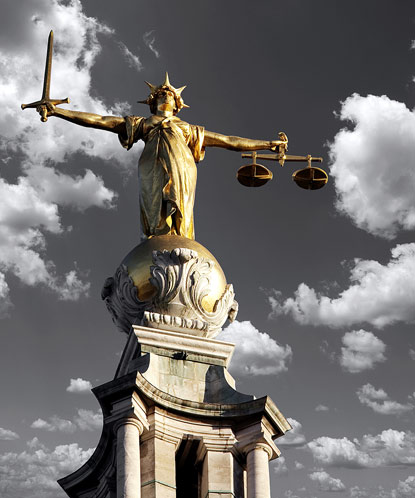 On 14th August 2014 the police entered the residences of Sir Cliff Richard following a complaint. Sir Cliff Richard, who was on holiday in Portugal at the time, when informed of the police action, strenuously denied any wrong doing.
On 14th August 2014 the police entered the residences of Sir Cliff Richard following a complaint. Sir Cliff Richard, who was on holiday in Portugal at the time, when informed of the police action, strenuously denied any wrong doing.
The BBC were altered by the police to the raids. It is possible that they did this with the aim of seeking out any further complainants.
Readers do not need the British Gazette to elaborate much further on this particular set of circumstances, but following several cases of celebrities being investigated in relation to historic sexual offences, the organ feels that the justice system in England and Wales needs to be looked at.
One of the immediate consequences of the police action was the reaction of internet users on “social media” channels such as Twitter.
The Twitterarti it seems have failed to heed previous lessons by declaring Sir Cliff Richard guilty in over 25,000 social media discussions on Thursday.
British Gazette readers will recall that whilst Stuart Hall and Rolf Harris were convicted of sexual offences, Jim Davidson, Freddie Starr and Jimmy Tarbuck were acquitted.
All of this of course follows from the allegations made over the late Jimmy Savile. Since then the police have been looking into numerous claims of historic sexual offences. Many of these complaints are thirty, forty or more years old.
This raises serious questions. In the case of a sexual offence, evidence can take the form of physical (forensic) evidence – this on the victim. Physical evidence on or around the crime scene can also be present. Then there are witnesses. Other persons may have witnessed the offence being committed.
All of this, together with the statements made by the victim and the offender will help the Crown Prosecution Service bring a case before a jury and the CPS counsel will be able to persuade a jury to convict. Remember, in English and Welsh law a defendant is assumed to be innocent. It is not the job of the defence counsel to prove the defendant’s innocence; it is up to the CPS to prove – beyond all reasonable doubt – the guilt of the offender.
In cases of historic sexual offences there are serious issues to discuss. These centre around the availability of evidence. In a hypothetical example of a defendant denying an offence and a complainant claiming an offence was committed against them the CPS have the witness statement of the complainant. The defence have the statement of denial by the defendant. In English and Welsh law, these two statements cancel each other out. If this is the ONLY evidence, the CPS cannot proceed. The CPS need corroborative evidence.
In historic cases this evidence may not exist. Any physical/forensic evidence of a sexual offence will have disappeared from a victim long ago. In the absence of any remaining physical evidence at the crime scene and absence of any independent witnesses, the CPS should not be able to bring a case.
It appears however that evidence in the form of internet activity, images downloaded onto a computer and other persons making similar complaints have been used to convict offenders. This raises grave concerns as in English law, evidence must relate directly to the offence the defendant is charged with.
This causes the British Gazette to ask the question: Should we reconsider the use of jury system in England and Wales. The British Gazette suggests that we should [reconsider it’s use] but not abolish it. Rather, a novel reform be introduced into the English legal system.
We would therefore direct the reader to this page by following the link below:
http://www.british-gazette.co.uk/reform-of-the-justice-system/
Speaking the Truth unto the Nation
